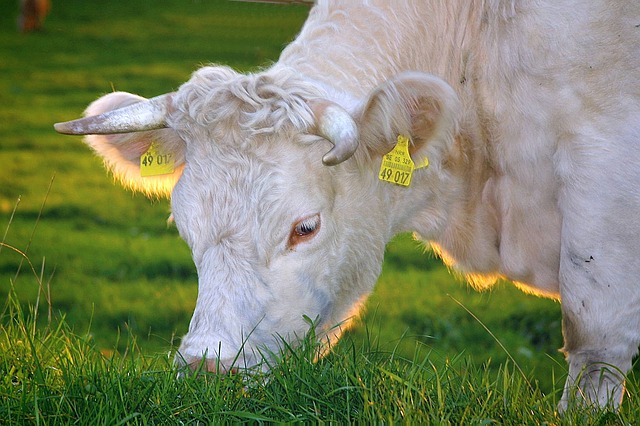Goal: 30% organic by 2030

The Federal Minister of Food and Agriculture, Cem Özdemir, today presented the "National Strategy for 30 percent organic agriculture and food production by 2030", or "Organic Strategy 2030" for short. With the Organic Strategy 2030, the Federal Ministry of Food and Agriculture (BMEL) shows how the appropriate framework conditions must be designed in order to achieve the common goal of 30 percent organic land by 2030. The government partners have set this goal in the coalition agreement.
Federal Minister Özdemir says: "For years, more and more companies have been seizing the opportunity to prepare their businesses for the future with organic production. Organic demonstrably protects biodiversity, water and the climate and the organic standard is regularly monitored. The desired growth of organic farming opens up opportunities for the entire agricultural sector and food industry additional opportunities. I'm also interested in innovations. Numerous developments in the organic sector are now widely used beyond the organic sector. This also brings many positive effects for farmers who work conventionally. By the way, advice I want to finally forget about the so-called ditches. In the villages, in the countryside, in the region, they have long since been filled in. Here, too, with the organic strategy, I am concerned with options, with additional choices for the farms. Switching to organic was necessary has been difficult in some cases so far. With our Organic Strategy 2030, we are now providing the decisive impetus for more organic food from the field to the plate. And we support the organic farming and food industry to further improve and increase yields through targeted research. We have a common goal, now we have a roadmap to make the goal a reality. With 30 measures for 30 percent organic in 2030."
The Organic Strategy 2030 incorporates key recommendations from the Future Commission for Agriculture (ZKL). With 30 concrete measures, it aims to sustainably strengthen the organic agriculture and food industry - along the entire value chain from the input markets to production, processing, trade and nutrition. Furthermore, the strategy aims to strengthen organic processing, enable more organic food in out-of-home catering and expand knowledge about organic among the population and in vocational training. This is intended to provide the farms with broader sales channels and even better acceptance for their organic agricultural goods. Research, knowledge transfer and data availability on organic farming and food production are also addressed. In this way, eco-companies can make the best possible use of their innovation potential. Last but not least, bureaucratic hurdles should be reduced and the funding framework expanded. This makes switching to organic more attractive and maintaining the organic standard is worthwhile.
Federal Minister Özdemir emphasizes: "It is important to us that the Organic Strategy 2030 is practical and oriented to the needs of everyone involved, from the farmer to the citizen. That is why the strategy was developed in a broad participation process with farmers, Economy, science and the states. Many countries already have their own organic programs, for example Bavaria wants to farm 30 percent of the area organically by 2030. The national organic strategy will also give these programs a boost."
You can also find all information about the Organic Strategy 2030 on the BMEL website.
Hintergrund:
In the coalition agreement, the federal government has set itself the goal of aligning the entire diversity of agriculture with the goals of environmental and resource protection and has set itself the goal of 30 percent organic production by 2030. In order to achieve these goals, the BMEL has developed a comprehensive strategy that aims to create suitable framework conditions along the entire value chain and reduce existing hurdles.
With 30 concrete measures, the Organic Strategy 2030 shows ways in which the federal government, together with companies in the value chain, the states, science and advice, can achieve the advancement of the production, processing and consumption of organic food - and at the same time the entire Makes the agriculture and food industry more resilient to crises. At the same time, the measures provide important impetus for the sustainable strengthening of the organic sector.
The central contents of the Organic Strategy 2030 are:
- Strengthen regions with eco: Promoting organic processing companies and strengthening organic value chains for regional food production, good jobs and strong regions.
- Enabling organic food for everyone: Strengthening organic out-of-home catering, especially in communal catering from daycare centers to hospitals to retirement homes for good organic food regardless of budget. This ensures fair sales opportunities for local organic farms.
- Raise potential through research and information: Strengthen organic research and align it with the 30 percent target in order to increase the innovation potential of organic production and processing along the value chain.
- Expand communication and education: Inform citizens about the services of organic products in order to enable them to make informed purchasing decisions, but also show the prospects of organic products in vocational training along the value chain.
- Public money for public services: Align agricultural and economic development with the goals of sustainability, environmental and climate protection and excellence in organic farming and food production so that the additional effort for the companies is worthwhile.
To develop the Organic Strategy 2030, the BMEL conducted a multi-stakeholder and participatory process that involved all relevant actors. Agricultural practice, the food and agricultural industry, representatives of the federal states, various departments, science and also the interested public were involved. In competence teams working in parallel, experts assessed the status quo of various issues and developed suggestions for measures. The interim results were presented and discussed in specialist forums.
